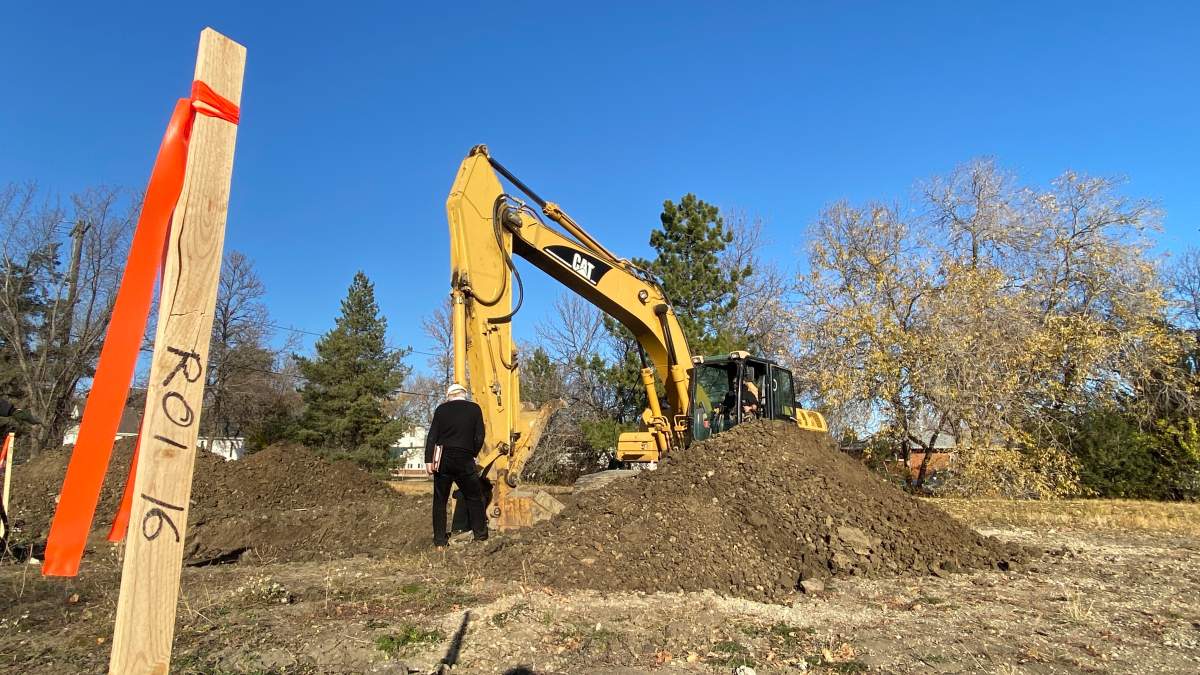A northern Alberta First Nation says it has completed the first phase of ground penetrating radar in its search for children’s remains at a former residential school site.

Kapawe’no First Nation, which is located northwest of Edmonton, says in a written statement that finding any unmarked graves at Grouard Indian Residential School, also known as St. Bernard Mission School, is imperative to the community’s collective healing.
The school was opened by the Roman Catholic Church in 1894 and closed about 60 years ago.
Kapawe’no First Nation says the archeology department at the University of Alberta is leading the project and a report on its findings should be finished by the end of the year.
The First Nation says they are also working with Treaty 8 First Nation to search for unmarked graves at 10 other residential school sites in Treaty No. 8 Territory.
The statement says the work has not received funding from the federal or provincial government.

Meanwhile, crews scoured the grounds of the former Charles Camsell hospital Thursday looking for gravesites.
It’s a search that brings back painful memories for one of the hospital’s former patients.

Get daily National news
“We definitely went through a lot of abuse and I once told my friend that I felt like I went through a torture chamber at sometimes,” Charles Camsell survivor Victor Bruno told Global News.
The Camsell hospital institutionalized many Indigenous people and especially those who had tuberculosis or other debilitating health concerns.
As a young boy, Bruno said he spent more than two years as patient in the hospital. He said he and many other students were transferred from their residential school to the hospital.
“A lot of people had passed — elders, old men or women, old ladies, a lot of young people, lot of young children and babies — hundreds of them that have passed in this particular hospital,” Bruno said.
Stories suggested those who died were buried on the grounds. Demands to search the site grew louder and in August, the first phase of the search began but nothing was found.
Thursday, crews were once again back at the Camsell, searching 21 sites over two days in this second and final phase.
“It’s important that we show our concern and compassion for the families that had relatives in this hospital that never came home. I think we owe it to those families to search these grounds to find truthfully whether they’re here or elsewhere,” Inglewood Gardens principal architect Gene Dub said.
Dub is developing the Camsell site. He said if human remains are found, none of the eight planned dwellings would be built.
“If we find these burials here, it proves that there was dishonour, how they were just buried basically without family involved in a ceremony most likely, and we’re here to give them proper respect and honour,” Papaschase First Nation Chief Calvin Bruno said.
Chief Bruno said even if nothing is found, knowing the truth will still help in the search effort.
“I hope that gives some families some closure but if nothing is found, the only logical conclusion is that all the remains were taken to Enoch, Poundmakers and St. Albert cemetery,” Calvin Bruno said.
Excavation work is scheduled to wrap up on Friday afternoon.
The Indian Residential Schools Crisis Line (1-866-925-4419) is available 24 hours a day for anyone experiencing pain or distress as a result of their residential school experience.
– with files from The Canadian Press
- Queen’s University students stranded in Doha after Iran attack shuts down airspace
- Iran begins search for new leader; U.S. military says 3 service members killed
- Khamenei’s death met with ‘jubilation’ among Iranian-Canadians: Liberal MP
- Attack on Iran triggers global flight disruptions, impacts Canadian travellers











Comments
Comments closed.
Due to the sensitive and/or legal subject matter of some of the content on globalnews.ca, we reserve the ability to disable comments from time to time.
Please see our Commenting Policy for more.